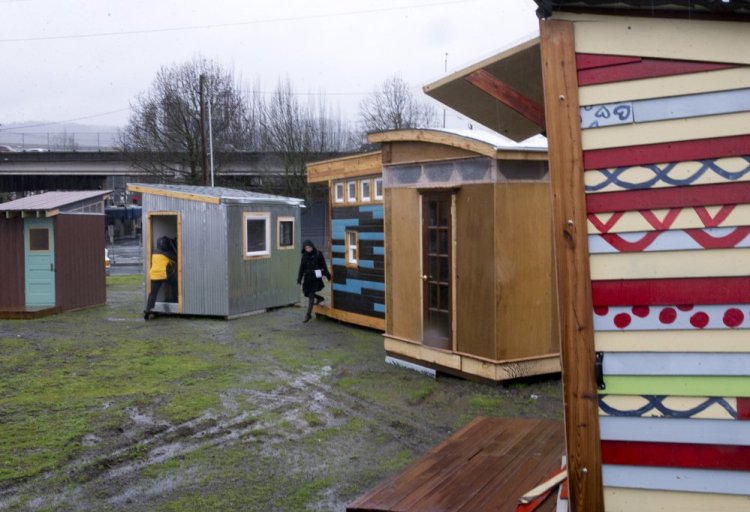PORTLAND, Ore. — Faced with an intractable homeless problem, officials in Portland are thinking inside the box.
A handful of homeless families will soon move into tiny, government-constructed modular units in the backyards of willing homeowners. Under the pilot program taking effect this summer, the homeowners will take over the heated, fully plumbed tiny houses in five years and can use them for rental income.
The project, called A Place for You, is believed to be the first in the nation to recruit stable residents to address a homeless crisis that’s gotten so bad the city last year declared a state of emergency and made it legal to sleep on the street.
Portland has an affordable rental shortage of 24,000 units and nearly 4,000 people sleep on the street, in a shelter or in transitional housing each night. Residents just passed a $260 million housing bond, but it will be two years before those units are ready, said Mary Li, director of Multnomah County’s new Idea Lab, which developed the concept.
The first phase is very small – likely just four families – with hopes to expand significantly if it works out or regroup if there are problems, Li said.
“We said to ourselves, ‘What does FEMA do when they have to house 10,000 people after an earthquake?’ Well, they grab a bunch of trailers and they plop them in a field,” she said.
“Well, there’s underutilized space in people’s backyards. What if we provide a lower-cost – but very habitable option – in people’s backyards?”
About 200 homeowners have signed up to learn more after Multnomah County’s project was first made public this week by the city’s alternative weekly paper.
Becca and Kelly Love were some of the first to express interest.
Becca, a social worker, and Kelly, a counselor, see the impacts of sky-high rents first-hand in their jobs working with low-income students at Portland Community College. They live in North Portland, an area struggling with homelessness.
“Just because you don’t have housing, it doesn’t make you a bad person or more likely to be a bad tenant. In fact, you’d be a better tenant because you’d appreciate it,” said Becca Love. “We’ve been trying to think of a way to help out in our community because we do have privilege … but we didn’t know what to do.”
Housing officials are still ironing out many details, but they will buy the first four modular units with $365,000 in government money and a charitable donation.
Send questions/comments to the editors.



Success. Please wait for the page to reload. If the page does not reload within 5 seconds, please refresh the page.
Enter your email and password to access comments.
Hi, to comment on stories you must . This profile is in addition to your subscription and website login.
Already have a commenting profile? .
Invalid username/password.
Please check your email to confirm and complete your registration.
Only subscribers are eligible to post comments. Please subscribe or login first for digital access. Here’s why.
Use the form below to reset your password. When you've submitted your account email, we will send an email with a reset code.